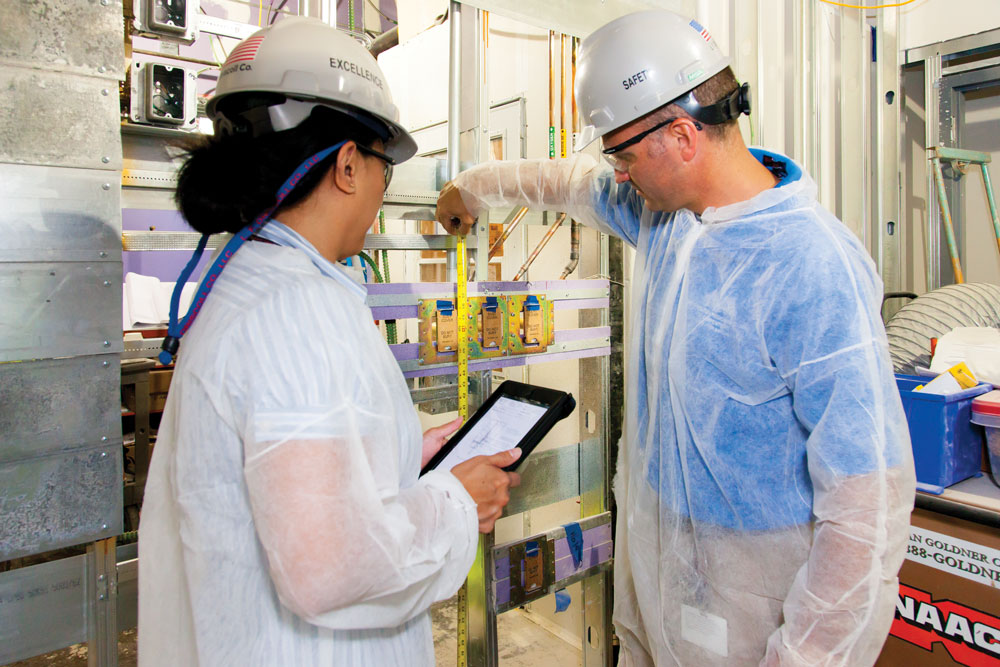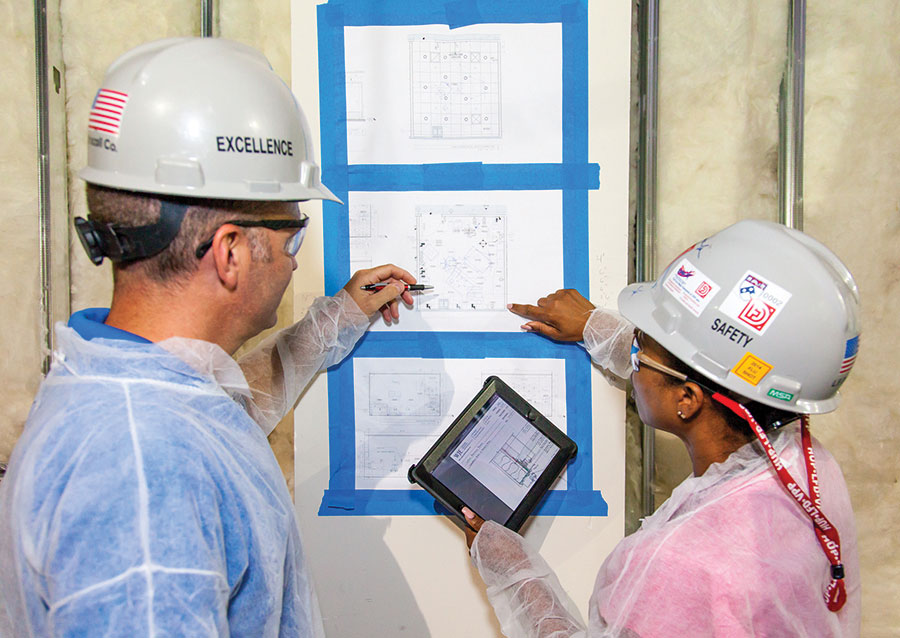INFECTION CONTROL IN HEALTHCARE CONSTRUCTION: What You Should Know
By Charles Steiner and Ray McDonald
For obvious reasons, infection control isn’t just a “best practice” in healthcare construction. It’s a responsibility, a moral duty and even a legal obligation. Over 100,000 people die each year from hospital-acquired infections (HAIs), and 5% to 7% can be directly attributed to construction. Many projects take place in the middle of an active hospital, where people with vulnerable immune systems simply can’t risk being exposed to construction-generated dust, debris or other potentially dangerous impurities.
FGI guidelines require a number of baseline infection control parameters, from isolating construction with sealed perimeters to monitoring air pressure. But in over 36 years of building healthcare facilities, we have developed a number of tips for healthcare project teams to consider to ensure their infection control precautions go well beyond baseline expectations.
1. Know your client’s policies and procedures. Every hospital or healthcare facility has its own safety and infection control policies and practices. The best way to ensure the construction team’s plan aligns with those policies is to convene a task force to develop the Infection Control Risk Assessment (ICRA). This multidisciplinary ICRA team should include representatives from the construction manager, the design team and the hospital’s infection control, project management, physical plant and safety departments. This combined knowledge about infection control, the environment of care, constructability and site challenges is essential for a successful process and positive end result.
2. Establish a “culture of caring.” One of the key mantras we remind our team members is that this is a hospital, not a construction site. We like to use what we call our “Operation 360” approach—we work inside a metaphorical box, and we must know who and what is on all six sides. Patients, visitors and staff come first, before whatever the day’s construction needs might be. Find out and understand the susceptibilities of the patients in the area of construction. Could noise affect their comfort or recovery? Would vibrations impact their treatment? Are they sensitive to certain materials or smells? In most cases, scheduling work around the most vulnerable time periods will reduce or eliminate these potential risks. Communication is also key—speaking to hospital user groups and nurse managers lets both you and them understand each other’s needs and schedules, and you can plan together accordingly so that patients continue to receive the best care.
3. Train your own infection control specialists. The construction crew is on the front lines and should be educated and empowered to lead infection control maintenance throughout construction. Crew members should each have assigned infection control responsibilities and be trained on and measured by them, from maintaining the ante rooms to routinely inspecting HEPA machines and changing their filters. Daily check-off maintenance sheets can help track and enforce ICRA program compliance. Follow-up, from regular inspections and documentation to disciplinary plans for violations, will keep the entire team united and ensure nothing slips through the cracks and puts patients’ lives in jeopardy.
4. Practice zero tolerance. This is just simply a good practice for everyone. Taking shortcuts could risk patients’ lives and cost you your job. What’s more, insurance companies are starting to refuse payment to hospitals where patients obtain an HAI. If the hospital can, they will pass along that cost to the construction team. Again, it’s key to remember that this is not a construction site—it is a hospital. The slightest safety or contamination breach can have serious, life-threatening consequences to an immunosuppressed patient. All those working on the project must have that “Operation 360” attitude of full awareness of what’s around them to keep the entire hospital community safe.
Remember, one day the person on the other side of that ICRA barrier just may be you or someone you love. We must take our responsibility as construction managers just as personally.

Ray McDonald

Charles Steiner


